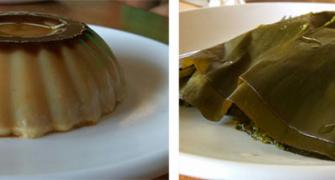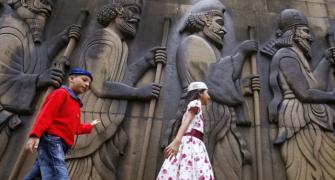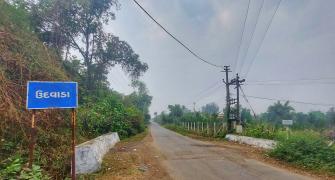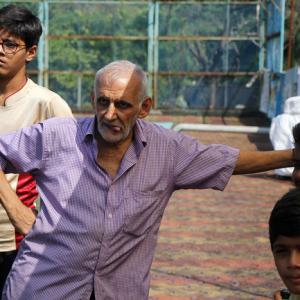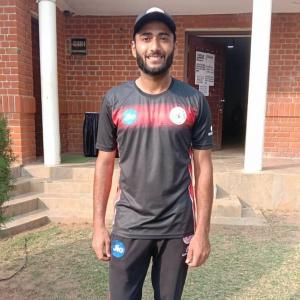'Parsis are brought up with a great sense of the importance of truth and speaking your mind.'

When journalist Coomi Kapoor set out to meticulously research and write a book on the Parsis and their unique, plucky journey to success, she understandably, quite naturally, found herself embarking on a memorable and perhaps emotional personal voyage of her own.
It was an embarrassing ignorance of her roots and ancestors that sparked the idea for her book, The Tatas, Freddie Mercury and Other Bawas: An Intimate History of the Parsis. As Kapoor worked to uncover the story of the Bawas, she was able to quickly and satisfyingly remedy the lack of knowledge about her own background.
"I really learned a lot, because I'm ashamed to say I didn't know that much about my community. Researching it was fun... I think after writing the book, I became prouder of the fact that I was a Parsi. I always proud of being a Parsi but it made me understand much more about the community. I hadn't given too much thought to the whole thing before."
In writing Intimate History of the Parsis on the "flavour of the community through the stories of its people" Kapoor offers an extraordinary and touching legacy for her own half-Parsi daughters -- stories about the forefathers 'who traveled far and fought fiercely to preserve their faith and identity'.
"It was also to show them about (their heritage) because they were upset and felt excluded," she says.
Because it is certainly not implausible or inconceivable that even half-Parsi daughters, with non-Parsi surnames, can bring a proud Parsi tradition forward, add value to it and build on it -- think Dina Jinnah Wadia, dignified matriarch of the Wadias.
Kapoor's book, in its conclusion, looks at the divisive views about the thorny question of augmenting membership of the community and its future.
In the final part of her insightful interview to Rediff.com's Vaihayasi Pande Daniel Kapoor speaks about the favourite characters in her book.
- Part I: 'Cyrus was a very sincere man'
- Part II: 'Everything is dependent on Ratan Tata'
- Part III: 'Vaccine shortage can't be blamed on Adar Poonawalla'
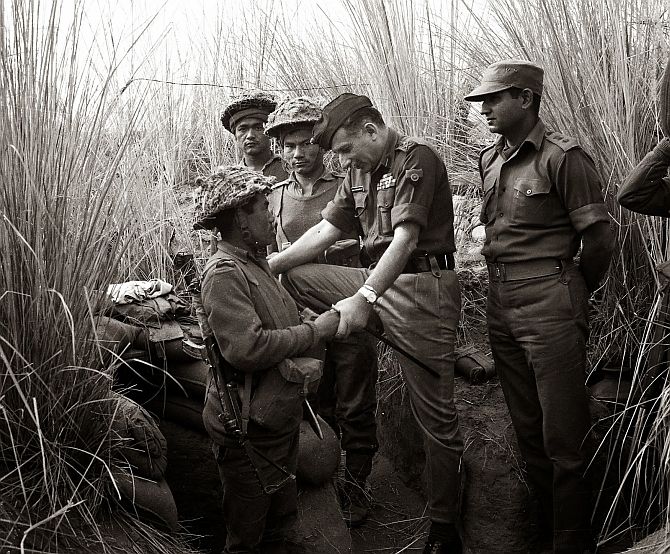
Who are some of the people that you were not able to interview for this book? Or the characters that you left out?
The one I left out -- I didn't really mean to leave out at all and I'm very ashamed of that and I hope if there's a second edition I can include -- is (playwright, actor, director) Adi Marzban. It was there in the chapter on the Parsi press. And of course, he had a prominent role. And his role in the theatre, which is the roots of the Hindi cinema.
He was such a colourful character again, one of the great journalists of the Parsi community. It was in the last chapter which got split into two and somehow in the process, this particular portion got left out.
Who is your favorite contemporary character in your own book?
Ah, difficult to say.
If it's of all the characters in the book, I think I would say my favorite characters are Nani Palkhivala and possibly Sam Manekshaw.
I should ask you why.
Palkhivala, I think, was the most brilliant jurist of his day. He fought for the individual against the Sate and the most trendsetting cases in India -- the Golaknath case and the Kesavananda Bharati judgment. They all decided, they laid down that the legislator has its limits compared to the Constitution.
And Palkhivala was more than a lawyer, but just a brilliant man. So simple and kind.
His Budget speeches built up public opinion against the Socialist raj and for liberalisation, long before liberalisation became fashionable.
As a director in the Tatas he did a very good job.
He came from a very humble background, and he remained humble all his life.
And Field Marshal Sam Manekshaw?
I also feel very proud of Manekshaw.
Most people remember Manekshaw because he was a man who won the greatest military victory for India ever.
But I also think that what's so remarkable about Manekshaw is the way he upheld the dignity of the Indian Army. And its position.
He took on Krishna Menon who was the defence minister at the time (during the 1962 War).
I don't think in today's India, an army chief would be able to do half as much as he did. And it's to the detriment of the army.

One learning I gained from your book was it showed me that even the most influential and wealthy of Parsis didn't really escape the wrath of the purist/purest members of the Parsi community.
One can understand both sides of the story -- on one hand, they want to keep the pedigree intact, to preserve the bloodline or whatever, and on the other hand there is a need to stop the dwindling community numbers.
Not the pedigree. They wanted to preserve the community, its traditions, its religion. As I keep pointing out, and which people get confused about it, there's a difference between being a Parsi, because Parsi simply means you are descendent of somebody who came years ago from Iran, and being Zoroastrian.
So, what they are defending is the right to be a Zoroastrian, which is not there in the original religion at all.
I suppose it's both. They are defending their Indian Parsi identity?
But you can't do that through a religion.

At the end of the book, you speak about what has to be done to increase the numbers. Would you say that is, by and large, the majority view of the Parsis?
I feel that 20-25 years ago it was not the majority view of the Parsis. I think today it may well be because I myself has seen such a major change.
I've been away from Bombay, which is the homeland of the Parsis. I've seen that in earlier days -- well I consider myself a Parsi and a Zoroastrian because I believe in the teachings of Zoroaster, which is truth, good thoughts, good words and good deeds -- but when you went to a funeral, for example, there were very clearly only Parsis over there. And we all wore these stiff white saris with the sudreh (undergarment) showing and dressed in a certain way.
Since I don't go to Bombay regularly for a long (intervals at a) time, when I went to another funeral, I was amazed. People were coming in slacks for a funeral and there were many who were clearly not fully Parsi -- half Parsi, quarter Parsi or whatever. Nobody was objecting.
So, I think yes, it's the majority.
Certainly, in Delhi, the Delhi Parsi Anjuman is very liberal. There they even allow non-Parsi spouses to be members.
The times are changing.

What part of your Parsi heritage are you not comfortable with?
Yes, one thing which I'm certainly not proud of, absolutely -- it's a disgrace that it still continues -- is the way they treat the pallbearers, the nussesalars. They are supposed to be confined to the Towers of Silence and they are not supposed to mix with the other Parsis. Inhuman and unbelievable for the present times.
I don't like the way the Bombay Parsi Panchayat functions either. I think they should be far more dignified. The people who stand should be eminent persons who represent some standing, who don't have a narrow-minded outlook. Some of the stories that I hear -- I don't know how far they are true -- about their wranglings are shocking. It is not expected of a progressive community like this.
The stories you narrate in the book about how the different industrialist families functioned were intriguing. Like how Ratan Tata had to go to America and wash the dishes, because the Reserve Bank of India rules didn't allow his father to give him more money. The youngsters all went onto factory floors and learned their trade right from there.
Is that tradition continuing? Or is that sort of getting diluted?
I think it may be diluted. Certainly, in the Poonawallas, Adar started at the top. But it is a totally family-owned business.
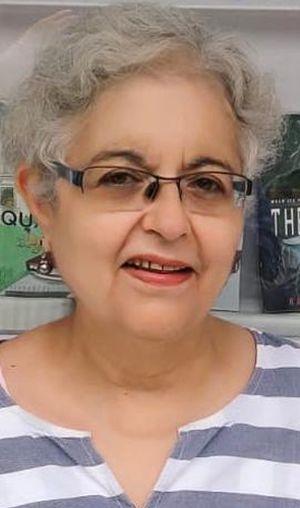 IMAGE: Coomi Kapoor. Photograph: Kind courtesy Westland Publications
IMAGE: Coomi Kapoor. Photograph: Kind courtesy Westland PublicationsGenerally, across the community, is that value changing -- that you start simple and modest?
Maybe they're not. Parsis are very generous. In the olden days, the Parsis that I knew, who were very rich, even now, they were quite simple and careful.
Like I've mentioned about (industrialist) Mr Ardeshir Godrej. He would walk to his office and do things like that.
I know people in my own family, who could well afford to own a car, who have been taking buses for years. So, it varies from person to person. There is that streak in many (Parsi) people, who believe in the simple lifestyle and that you don't have to flaunt your wealth or anything.
That's mentioned even in (business woman and social worker) Anu Aga's life story. She talks about her father and how they lived somewhere between Dadar and Mahim (north central Mumbai) and she was sent to a simple school.
And this is a point also made by (art historian) Pheroza Godrej. She said that when she married into the Godrej family, she was surprised how simply they lived, because all the money, the profits they made was plowed back into the factory. Anu Aga made the same point.

We have a very clear idea about who the typical Parsi was of my or your generation is/was. But who do you are going to be the inheritors of this mantle?
What are the modern, young Parsis -- be they part Parsis -- going to be like and what of the Parsi tradition and heritage will they take forward intact with them?
I think they will certainly keep some of the traditions. If you are proud of your traditions, you keep them and if you aren't, you don't.
What will the future Parsi or modern Parsi be like?
I don't know that today's Parsis are not modern.
The lifestyle will always remain. Religion is not the only thing. There's a uniquely Parsi lifestyle, which I don't think is going to die away in a hurry.
They have a fantastic sense of humor. They have a food tradition, which has become so popular that you now have restaurants which serve Parsi food.
And as I pointed out, so many of the things that they brought have become a part of Indian culture, whether it's the chiku or the tanchoi sari. They started cricketing in India, not that they have much presence in it today.
I do think Parsis are brought up with a great sense of the importance of truth and speaking your mind. I think that does remain.
Feature Presentation: Aslam Hunani/Rediff.com

